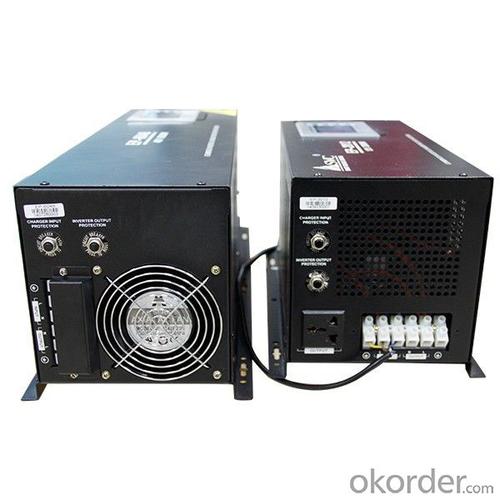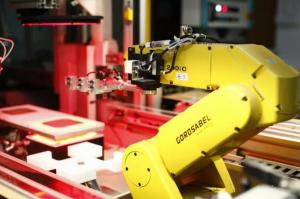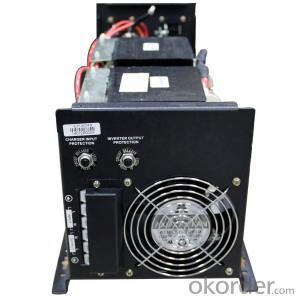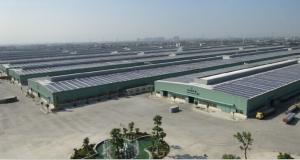Solar Energy Systems Tunisia - 1000W LCD Display Combined Pure Sine Hybrid Solar Inverter
- Loading Port:
- China main port
- Payment Terms:
- TT OR LC
- Min Order Qty:
- 20 carton
- Supply Capability:
- 10000 carton/month
OKorder Service Pledge
OKorder Financial Service
You Might Also Like
1000w LCD Display Combined Pure Sine Hybrid Solar Inverter
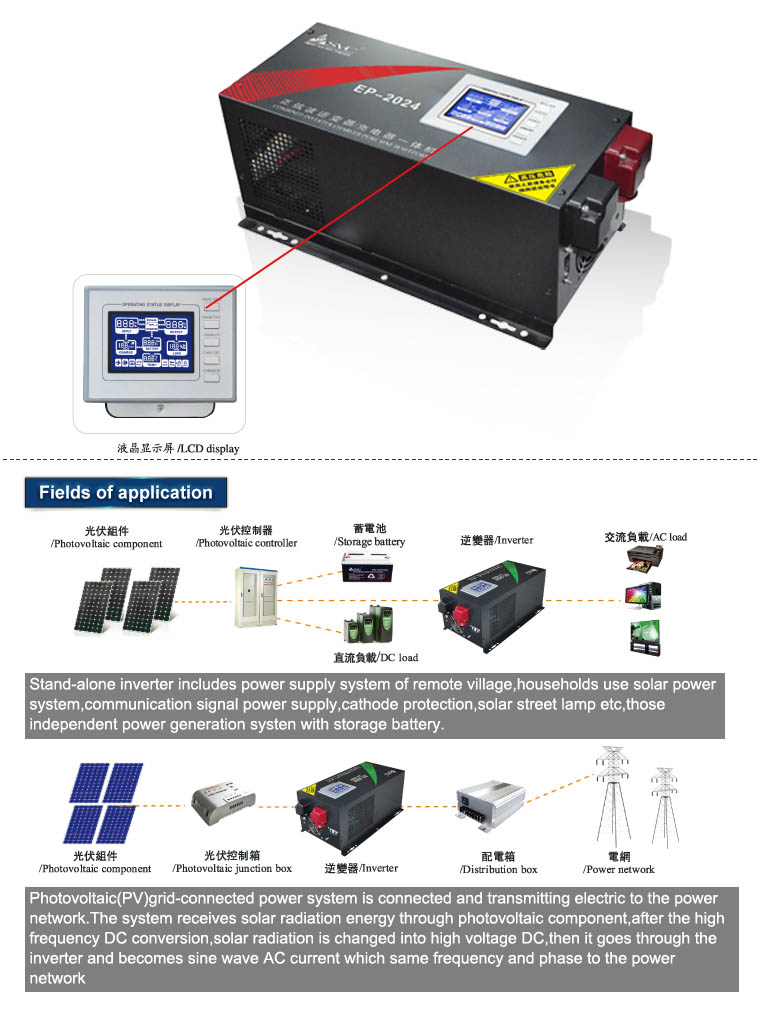
Product Description

| Model | EP Solar-1012 | EP Solar-2024 | EP Solar-3024 | EP Solar-4048 | EP Solar-6048 |
| Rated power | 1000W | 2000W | 3000W | 4000W | 6000W |
| INPUT | |||||
| Input voltage range | 185~265VAC | ||||
| OUTPUT | |||||
| Input voltage range | 220VAC/230VAC | ||||
| Output frequency | Batt. Mode:50±0.3Hz AC mode:48~54Hz(50Hz) or 58~64Hz, Same as AC | ||||
| Output wave form | Sine wave (Batt. mode) | ||||
| Transfer time | 10ms(Typical) | ||||
| PROTECTION | |||||
| Overload protection | (100%<Load<120%)±10%:Auto shutdown in 2 mins;(120%<Load<140±10%;Auto shutdown in 60 Secs;(140%<Load)±10%:Auto shutdown in 20 Secs; | ||||
| Output short circuit protection | Yes | ||||
| Breaker | Input:15A/Output:10A | Input:30A / Output:15A | Input:35A / Output:20A | Input:40A / Output:30A | |
| BATTERY | |||||
| Rating charging current(Max.) | 45A | ||||
| Nominal DC input voltage | 12V | 24V | 48V | ||
| 20V/40V | |||||
| PHYSITAL | |||||
| (kg) / Net weight (kg) | 22.8 | 27.6 | 32.4 | 38.2 | 44.5 |
| (mm) / Unit dimention (mm) | 468(L)*224(W)*212(H)mm | 644(L)*224(W)*212(H)mm | |||
| ENVIRONMENT | |||||
| Environment of performance | Temperature 0℃~40℃, Humidity 20%~90% | ||||

1. Wide range of input voltage
The UPS can offer normal and stable service voltage under its input voltage range. When the input voltage is out of its range the machine will switch to battery mode automatically to keep the output power in order to protect the equipment, such as computers, ensure they will not be damaged by the over high or over low voltage, users can continue the operation of equipment for a while or save the data on computers while the power network is abnormal.
2. Wide range of AVR(Automatic voltage regulation)
In the product’s input voltage range and under 3 steps of intelligent AVR function, it can provide a stable output voltage.
3. Automatic self detection when UPS on(LED).
Before the UPS on, red, yellow, blue LED will light up two times by cycle turns, after self detection UPS switch to AC mode/battery mode or working mode.
4. Silence function
In the "battery mode", shortly press the switch to turn off the buzzer. But the battery is about to run out or the load is too heavy, the buzzer sound cannot be muted.
5. Overload protection
In the battery mode, output voltage turn down correspondingly when it is overload, after the capacity of load is lower than the rated power then output voltage will back to rated value, it ensures the UPS will not shut down by abrupt overload which caused by surging current during the computer is working and other equipment is added.
6. Short circuit protection
When the mis-operation caused the load short circuit or computer failure (such as power tube breakdown of switch) cause short circuit, the UPS will shutdown automatically for protection.
7. The low current switch
This UPS adopts low current switch to extend the service life which is longer than conventional battery and high current switch in AC current path.
8. Automatic charging
There are two charging mode, charging time is faster than ordinary charging mode, higher efficiency, and greatly prolonging the service life of the battery.
9. With a bypass output
Independent bypass output socket for external printers or scanners of computer peripherals, with surge protection of the load.
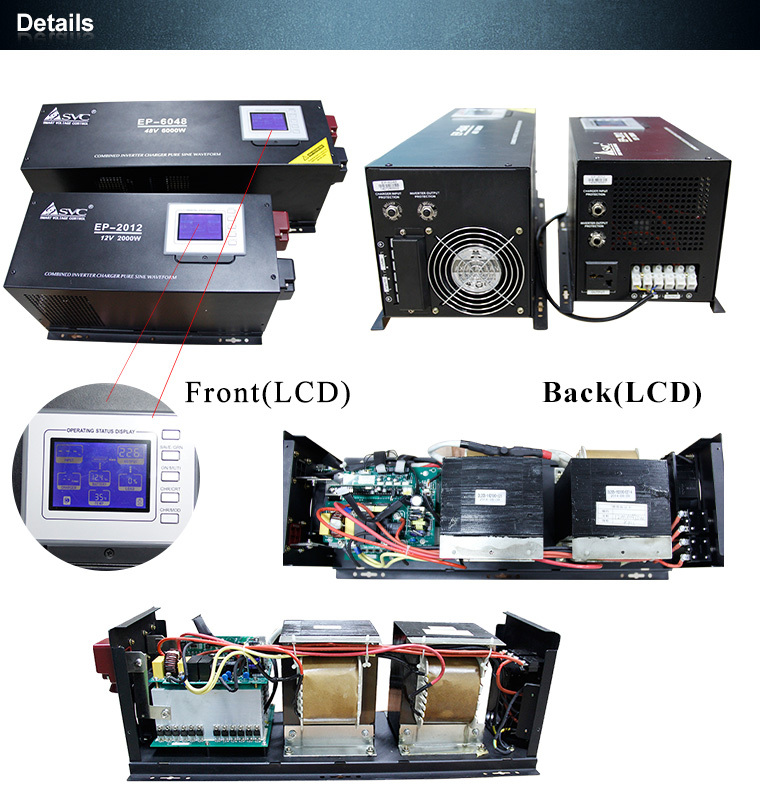
- Q: Are there any noise concerns with solar energy systems?
- Yes, there are generally no noise concerns with solar energy systems as they do not have any moving parts and operate silently.
- Q: How does the quality of solar panels vary across different manufacturers?
- The quality of solar panels can vary significantly across different manufacturers. Several factors contribute to this variation. Firstly, the materials used in the manufacturing process can greatly influence the quality of the panels. Some manufacturers may opt for cheaper materials that may degrade or have lower efficiency over time, while others may use high-quality materials that ensure durability and optimal performance. The type and quality of photovoltaic cells used in the panels can also vary, affecting their conversion efficiency and overall power output. Secondly, the manufacturing processes and technologies employed by different manufacturers can impact the quality of solar panels. Companies that invest in advanced production techniques and quality control measures are more likely to produce panels with superior workmanship and reliability. On the other hand, manufacturers with subpar manufacturing processes may produce panels that are more prone to defects, malfunctions, or premature degradation. Thirdly, the level of research and development undertaken by manufacturers plays a significant role in panel quality. Companies that invest in research and development are often at the forefront of technological advancements, resulting in panels with higher efficiency, better durability, and improved performance. Conversely, manufacturers that lack investment in R&D may offer panels with outdated technology or lower reliability. Additionally, the reputation and track record of a manufacturer can provide insights into the quality of their solar panels. Established manufacturers with a long history of producing reliable and high-performance panels are generally more trustworthy than new or unknown companies. Independent certifications and third-party testing can also help assess the quality of panels, as they provide an unbiased evaluation of their performance, durability, and adherence to industry standards. It is crucial for consumers to thoroughly research and compare different manufacturers before investing in solar panels. Factors such as materials, manufacturing processes, R&D investments, reputation, and certifications should all be taken into account to determine the quality and long-term reliability of the panels.
- Q: Can solar energy systems be used for powering military bases?
- Yes, solar energy systems can be used to power military bases. In fact, many military bases around the world are increasingly adopting solar energy as a reliable and sustainable source of power. Solar panels can be installed on rooftops, open spaces, or even integrated into buildings' facades, providing clean electricity to support the energy needs of military facilities. This not only helps reduce reliance on fossil fuels but also enhances energy security and resilience for military operations.
- Q: What is the difference between a grid-tied and off-grid solar energy system?
- A grid-tied solar energy system connects to the local electricity grid, while an off-grid solar energy system operates independently and is not connected to the grid. In a grid-tied system, electricity is generated from the sun by solar panels and converted into usable AC power through an inverter. This power is used by the household or business where the system is installed. If the solar panels produce more electricity than is consumed, the excess power is sent back to the grid, resulting in possible credit or payment from the utility company. When the solar panels do not generate enough power, electricity is drawn from the grid, ensuring a continuous and reliable power supply with the grid serving as a backup. On the other hand, an off-grid solar energy system is designed to operate independently from the grid. It typically includes a battery bank to store surplus electricity generated by the solar panels. This stored power can be used when the panels do not produce enough. An inverter is also required to convert the solar panels' DC power into usable AC power. Off-grid systems are commonly used in remote areas where connecting to the grid is expensive or impractical. The main difference between the two systems lies in their level of independence and connection to the grid. Grid-tied systems offer the advantage of selling excess electricity back to the utility company, potentially saving costs or generating revenue. They also provide a reliable power supply by using grid power when solar production is low. On the other hand, off-grid systems provide complete energy independence and do not rely on the grid. However, they require careful planning and sizing to ensure sufficient power availability at all times since there is no grid backup. Additionally, off-grid systems often necessitate more complex equipment, such as batteries, for storing and managing electricity.
- Q: Can a solar energy system be used to power outdoor lighting?
- Yes, a solar energy system can definitely be used to power outdoor lighting. In fact, solar-powered outdoor lighting systems are becoming increasingly popular due to their numerous benefits. Solar panels installed on rooftops or in open areas capture sunlight and convert it into electricity, which can be stored in batteries for use during the night or on cloudy days. This stored energy can then be used to power outdoor lighting fixtures such as streetlights, garden lights, pathway lights, and even security lights. Solar-powered outdoor lighting systems are cost-effective, environmentally friendly, and do not require any electrical wiring, making them easy to install and maintain. Additionally, they offer the advantage of being independent of the grid, ensuring uninterrupted lighting even during power outages. Overall, solar energy systems are a highly efficient and sustainable solution for powering outdoor lighting.
- Q: Can a solar energy system be installed in an area prone to hurricanes?
- Yes, a solar energy system can be installed in an area prone to hurricanes. However, it is important to take certain precautions and design the system with hurricane-resistant features to ensure its safety and durability. This may include using high-quality materials, reinforcing the mounting system, and implementing secure installation methods. Additionally, regular maintenance and inspections should be conducted to address any potential damages or issues caused by hurricanes.
- Q: What are the benefits of using solar energy?
- There are several benefits of using solar energy. Firstly, it is a renewable and abundant source of energy, meaning it will never run out. Additionally, solar energy is clean and does not produce harmful greenhouse gas emissions, making it environmentally friendly. Moreover, using solar energy can help reduce electricity bills as it allows homeowners and businesses to generate their own power. Lastly, solar panels require minimal maintenance and have a long lifespan, offering a cost-effective energy solution in the long term.
- Q: Can solar energy systems be used for space exploration?
- Yes, solar energy systems can be used for space exploration. Solar panels are commonly used to power satellites and space probes, as they can efficiently convert sunlight into electricity in the vacuum of space. This renewable energy source helps to provide a reliable and sustainable power supply for various space missions, reducing the dependence on traditional fuel-based systems.
- Q: Can solar energy systems be used for powering electric bikes?
- Yes, solar energy systems can be used to power electric bikes. By installing solar panels, the energy they generate can be used to charge the battery of an electric bike, providing a clean and renewable source of power. This allows for a sustainable and eco-friendly way to fuel electric bikes.
- Q: What are the different mounting options for solar panels?
- There are several mounting options for solar panels, including rooftop, ground-mounted, pole-mounted, and flush-mounted installations. Rooftop mounting is the most common and involves securing the panels to the roof of a building. Ground-mounted systems are installed on the ground using racks or frames. Pole-mounted systems are mounted on a single pole or multiple poles, allowing for adjustable angles. Flush-mounted installations involve integrating the panels directly into the structure of a building, such as windows or walls. Ultimately, the choice of mounting option depends on factors such as available space, orientation, and aesthetic preferences.
Send your message to us
Solar Energy Systems Tunisia - 1000W LCD Display Combined Pure Sine Hybrid Solar Inverter
- Loading Port:
- China main port
- Payment Terms:
- TT OR LC
- Min Order Qty:
- 20 carton
- Supply Capability:
- 10000 carton/month
OKorder Service Pledge
OKorder Financial Service
Similar products
Hot products
Hot Searches
Related keywords



